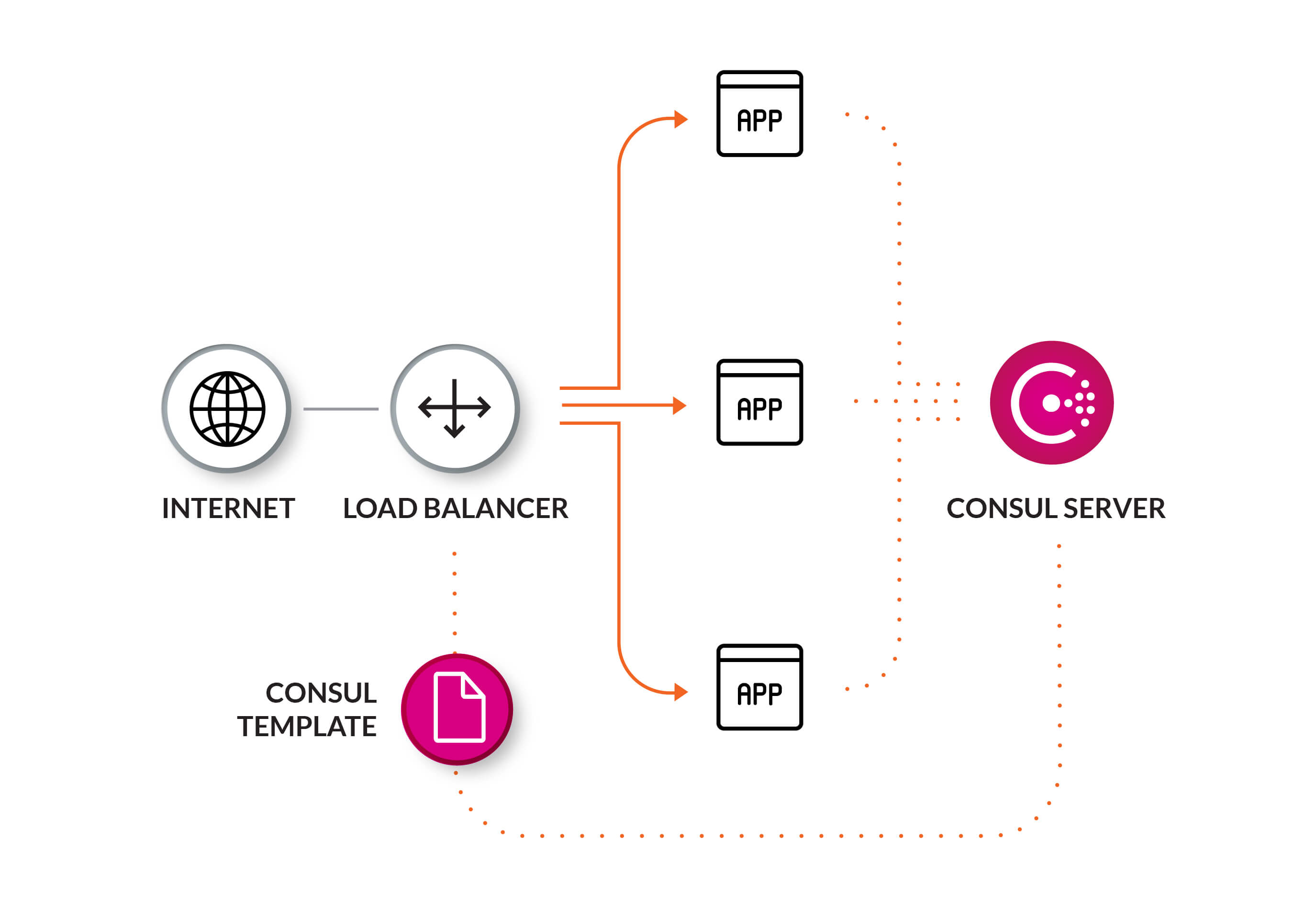What is Consul and how does it operate?
Consul is a service networking solution that was developed by HashiCorp to provide a comprehensive control scope that includes service discovery, health checks, load balancing, a service graph, mutual TLS identity enforcement, and a configuration key-value store. In simple words, Consul is an open-source tool that helps deal with various complexities in distributed applications that might appear around inter-service communication, configuration management, and network segmentation. Depending on the need, functions can be used either individually or together to build a full-service network. What is also great about Consul, is the fact that it functions with a simple built-in proxy so that everything works out of the box and, what is more, supports 3rd party proxy integrations, such as Envoy.

Did Consul bring changes?
Consul was developed with an aim to enable the shift from static infrastructure to a dynamic one. Previously, traditional approach implied:
- Static connectivity between services
- Private datacenters with static IPs
- A stock of load balancers
- Ticket driven operations to update network middleware primarily north-south traffic
- Firewall rule sprawl to restrict access and insecure network zones
With the Consul development, state of things changed notably since Consul approach now enables:
- Engagement of multiple clouds and private datacenters with dynamic IPs
- Prevailing east-west traffic
- Centralized registry
- Services discovered and connected with centralized policies
- Network automation
- Zero trust network imposed by identity-based security policies
When and why to apply Consul?
Service discovery
By employing Consul, it became possible to dynamically locate any application or infrastructure service to simplify network connectivity and routing. For a long time, companies had to deal with many challenges that emerged due to frequent manual updates to load balancers as services scale up/down, the domination of east-west load balancers, higher probability of human error. Thus, reduced productivity, increased costs and risks were faced and had to be resolved on a daily basis. Consul solution brought remarkable benefits by reducing time services connection from weeks to seconds avoiding human intrusion and lowering the probability of idle time incurred due to load balancers management.
Service mesh
Service mesh implies a distributed infrastructure layer that ensures fast, safe, and reliable interaction between services across any runtime platform and cloud. By shifting functionality from network middleware to the endpoints, networking is significantly simplified, security strengthened, and productivity increased. Service mesh approach enabled decent authorization and mutual-TLS, maximum automation, minimum operating overhead of networks, cutting down on network appliances, and substantial network simplification by ceasing tangled topologies.
Key Consul features
Thus, Consul exposes a great range of features that notably boost the workflow and productivity in general. Here are the major ones:
- Centralized control: Consul controls the distributed data to provide a reliable service mesh.
- Automation: network middleware configuration and certificates lifecycle management are automated, thus, less human intrusion is needed, which implies less human error probability
- A real-time services directory: as a result, more effective management and fewer bottlenecks
- Comprehensive support with various workload types and platforms
- Service discovery: some clients can easily register a service, others have full access to discover providers of this or that service, while applications can find services they depend upon by employing DNS or HTTP.
- Health checks: Consul can run any number of health checks that then help direct traffic away from unhealthy hosts
- Multiple datacenters: since Consul supports multiple datacenters out of the box, there is no need for additional layers of abstraction to multiple regions.
Discover Consul
Consul was developed to be friendly and beneficial to both DevOps engineers and application developers since it is a perfect match for modern infrastructures in terms of productivity, management, and security.
Get back to us by simply clicking here. Let us share our expertise with you.
